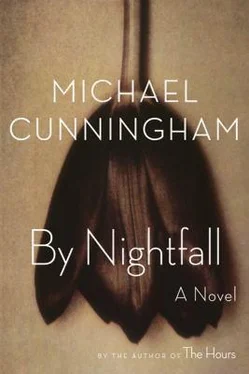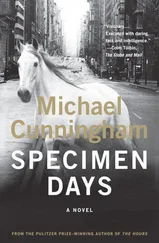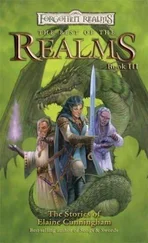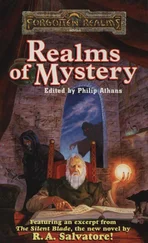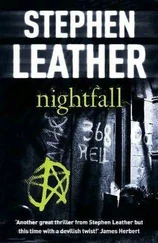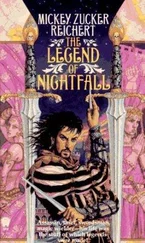Gus pilots them through the verdant and prosperous Greenwich streets. Ah, Greenwich, Connecticut, the wealthy reasonableness of you. These treed streets that offer their ornate Victorians, true American classics, maintained like the museum pieces they are, and farther off, apart from public view, the truly vast piles of stone and lumber, discreet behind gates and hedges, invisible for the most part save for a gable here, a chimney there. The money is quiet, nothing like the Hamptons or the Hills, and although, sure, it’s a posture it is, to Peter at least, a more agreeable one, and it has the effect, on Peter at least, of conferring a sense not so much of enormous, horrific privilege as of improved reality. In Greenwich, one has simply slipped over into a parallel dimension in which people are doing better, and no one here in this dimension finds that fact in any way remarkable. Making a fortune? What’s so hard about that?
The car mounts the hillock from which the Potter house rises. The Potters are rich, even by Greenwich standards, but not mega-rich, not private plane rich, not five houses rich, and so their house is obscure but not entirely concealed—you can see more than half of its north facade from the street.
It’s not Gatsby’s house, it’s Daisy Buchanan’s; it’s the source of the green light across the water. If Fitzgerald described Daisy’s house, Peter doesn’t remember it, but it was clearly not Gatsby’s turreted, ivy-covered pile. Whether this comes from Fitzgerald or from Peter’s imagination, the house Tom bought for Daisy had to have been at least a little like the Potters’ place, a house Nathaniel Hawthorne would have understood, big, of course, but neither faux castle nor limestone monument (consider all those solemn, sepulchral monsters in Newport); more than anything an enormous rambling house, all fieldstone and gables, girded on three of its four sides by verandas; contrived, somehow, with a sense of absolute authenticity, to seem to have been variously added-on-to over the years, when in fact it was built entirely, just as it is, in the mid-1920s. Standing placidly but lightly (all those mullioned windows, the vast maternal wingspans of its eaves) on its miniature inland sea of perfectly tended grass, it resembles nothing so much as a sanitarium, like the place they sent Bette Davis in… hm, was it Now, Voyager or Dark Victory… anyway it’s like some mythical nervous-breakdown millionaires’ hideaway, a perfect sanctuary of the sort that surely doesn’t exist now and probably didn’t when they made the Bette Davis movie, either. Were there really ever places like the Alpine clinic in The Magic Mountain? (That’s probably why Peter’s thinking of sanitariums just now.)
And it’s absolutely, positively not where Mizzy would be sent for a new round of rehabilitation. He’d be sent to a hospital, replete with brown floor tiles and raggedy, stained chairs. Peter can picture it all too clearly. Why would anyone volunteer for that?
Gus parks, and look, praise Jesus, there’s Tyler’s van. As Peter walks to the entrance, with Mizzy at his side (Gus has opened the car doors for them and vanished into some obscure Gus realm), Peter checks through the van’s rear window. Yes, oh yes, there’s a crate inside, let it contain the rejected Krim, let Tyler and Branch be installing the Groff right now.
Svenka answers the door. She is a wide-faced, surprised-looking woman in her early thirties, something stretched about her (not surgically produced); some hint of a curse hurled into her bassinet (The child will grow too big for her skin). If this were the nineteenth-century English manor house it aspires to resemble, Svenka would be the housekeeper, but this being twenty-first-century America she is called the… what?… concierge or something, anyway, she runs the place, oversees the staff (three in the off seasons, seven in summer), knows how to have decent flowers delivered in Darfur, can arrange for a helicopter into the city on twenty minutes’ notice. She’s got an MBA, she earns real money doing this. She confided once to Peter that she proved to be too domestic for her management consultant job (“alvays airports and hotels, no life”), insists she does not consider this job in any way less than that one; and yet because the Potters consider their staff to be “part of the family,” because they approve of marriages to “nice local girls,” Svenka is willing (or compelled to be willing) to answer the door if she happens to be closest to it when somebody arrives. At other such houses, the Svenkas and Ivans and Grishas (they tend to be well-educated Eastern Europeans) would never deign to answer the door. A maid would do it.
“Helloo, Peter,” she says, grinning with what Peter once thought was lasciviousness but which, as he has come to realize, is actually a sense of complicity, because Svenka knows that although Peter gets picked up by Gus at the station, although he’s invited to dinner parties, he is in fact a servant, just as she is.
“Hello, Svenka. This is Ethan.”
“Hellloo, Ethan. Do come in.”
The foyer of the Potter house, like the rest of the Potter house, is a perfect imitation of itself. What the foyer most immediately offers is a low, black-lacquered Chinese cabinet. Peter doesn’t know Chinese antiquities but you don’t need formal training to see that this thing is ancient, this thing is from some revered dynasty or other and was 240 grand minimum. It supports a pair of chunky French candelabra, brass or bronze, early twentieth century, patinaed to a rich brown-black, and an unornamented Roseville ceramic vase, cream-colored, full always of flowers from Carole’s garden—big blowsy white gardenias, just now. And so, the house announces itself: eclectic but fiendishly edited, prosperous but not ornate, gilt-free, beautiful in a way that will probably charm you if you’re ignorant about furniture and art but will dazzle and humble you if you know your shit.
As Svenka leads them into the living room, Peter glances surreptitiously at Mizzy, to see how he’s taking it, but there’s nothing much on Mizzy’s face at all, and it occurs to Peter that Mizzy may in fact feel a certain sense of homecoming here—it’s probably been a long time since that threshold was crossed by anyone as exquisite and well-made as the objects within.
Still, he wonders: Is Mizzy impressed by all this quiet splendor, or put off by it? It would, of course, speak more compellingly of Mizzy’s character if he was put off (I mean really, sure, it’s beautiful, they’re passing the foyer Ryman now, one of the Potters’ true prizes, almost heart-stoppingly perfect to the left of the Chinese cabinet, but still, but yet, the preciousness of everything, the exhausting preciousness… ), though Peter hopes Mizzy is impressed, at least a little—Mizzy, this is my world, I deal routinely with people who’ve got this much money and power, and if it interests you even a little then you’re interested in me as well; whereas if you think it’s all even slightly ridiculous… hm, do I have to be ridiculous along with it? It’s just business, after all. I can still cavort on a moonshone lane. I can still dance to the pipes.
And then: the Potters’ living room.
It’s a great room, and it should properly be entered to a flourish of trumpets, maybe Bach—anyway something small but perfect and imperishable in the way of Bach. The whole house is perfect, and ever so slightly creepy because of that, save for this, the living room, which is so magnificent it transcends its own pretensions, with its wall of French doors that open onto the square of grass bordered by a rose thicket (the views of Long Island Sound are elsewhere), as if nature itself (okay, the better parts of nature) were a series of rooms not unlike the one you’re standing in—outdoor rooms with viridian carpets and ceiling clouds by Michelangelo and blossoming dark green rustling walls. And then, of course, on this side of the glass-paned doors the garden is answered by twin Jean-Michel Frank sofas upholstered in pewter-colored velvet on either side of a Diego Giacometti table that really should be in a museum; by spindly lamps and massive lamps and a clouded old wood-framed mirror (no gold, gold is forbidden here) propped on, not hung over, the austere limestone mantle top; and on the one windowless wall the Big Kahuna, the Agnes Martin, presiding over the room like the visiting god it is, satisfied, it would seem, by these offerings of sofas and tables created by geniuses, by these stacks of books and this gaggle of glass-eyed wooden saints and these Japanese vases full of roses (yellow for the living room) and these shelves full of various collections (Deco pottery, carved wooden Dogon figures, old cast-iron banks) and this enormous ebony bowl filled, just now, with persimmons. In this room, even in daylight, there is a sense of candles flickering just outside your range of vision. There is (for real, it’s a spray) the scent of lavender.
Читать дальше
Конец ознакомительного отрывка
Купить книгу
